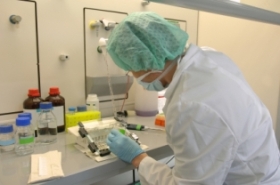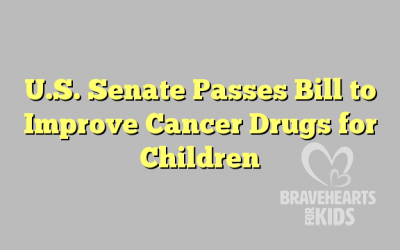 Up until now, drug companies have been free to decide whether to pursue treatments for paediatric cancers as part of their work on adult cancers or not, and this has led to a minimal amount of new drugs specifically for paediatric cancers being developed.
Up until now, drug companies have been free to decide whether to pursue treatments for paediatric cancers as part of their work on adult cancers or not, and this has led to a minimal amount of new drugs specifically for paediatric cancers being developed.
An estimated 2,000 children die of cancer annually, and the overall incidence of childhood cancer has been slowly increasing since 1975 – there has been a 13% rise in Childhood Cancer in the past 20 years alone.
Despite significant advances against certain pediatric cancers, including Acute Lymphoblastic Leukemia, there are still some types of cancer for which there are few or no effective treatments.
The truth is that new drug development in pediatric cancer is extremely slow, often lagging way behind adult treatments, and few compounds are designed specifically for children.
The sad truth is that Childhood cancers make up less than 1% of all cancers diagnosed each year, and that is is not much of a market for drug makers, who rack up an estimated $1.4 billion in out-of-pocket costs while bringing a novel drug to market.
They won’t have much choice going forward!!
The Senate on has just overwhelmingly passed legislation requiring the pharmaceutical industry to expend more resources on treatment for childhood cancers. The bill, part of a larger measure reauthorising user fees imposed by the Food and Drug Administration, heads to President Trump for his expected signature.
Existing law directs companies to study the safety and efficacy of adult drugs on children unless the FDA gives them a waiver. Medicine developed to treat heart disease or diabetes for adults, for example, must also be tested for its use on children.
But when it comes to cancer, advocates say the FDA has too much latitude to exempt the industry from studying and developing help for kids. Federal regulators often have not required companies that invest heavily in the four major cancers — breast, prostate, lung and colon — to research how the treatments they develop for those adult-oriented diseases might assist in addressing childhood cancers.
Over the past 20 years, the FDA has approved about 190 new cancer treatments for adults but only three for children, said Sen. Michael Bennet, a Colorado Democrat who co-sponsored the provision with Florida Republican Sen. Marco Rubio.
“That meant our kids continue to receive older treatment, some from the 1960s that often had harmful side effects and consequences that can last a lifetime,” Bennet said on the Senate floor.
“At the same time, breakthrough treatments have become available for adults with better results and few harmful effects. While these treatments have great promise for kids, we’re not doing enough to explore that potential.”
Advocates cheered the bill’s passage.
“Today’s Senate vote is a giant leap forward in the fight against childhood cancer,”  said Jorge Luis Lopez, a Miami attorney who sits on the board of the American Cancer Society. “We urge Donald Trump to sign this legislation into law and unleash American innovation and creativity for the health and well-being of all our children.”
said Jorge Luis Lopez, a Miami attorney who sits on the board of the American Cancer Society. “We urge Donald Trump to sign this legislation into law and unleash American innovation and creativity for the health and well-being of all our children.”
On Wednesday, Rubio was on the Senate floor sharing a story about Bella Rodriguez-Torres, the 10-year-old girl from Miami whose 2013 death helped get him involved.
“She was a classmate of my nephew in grade school,” Rubio said. “And she lost her battle with cancer. Her father has been a tireless advocate on this cause. He moved heaven and earth to try to reach a point where they could find a cure for her. That did not come in time and he’s now made it the mission of his life to honor her life by continuing this work. So we’ve all been impacted in some way.”
Source: U.S. Senate Passes Bill to Improve Cancer Drugs for Children




Most Commented